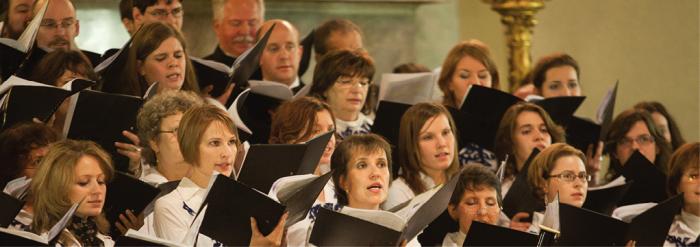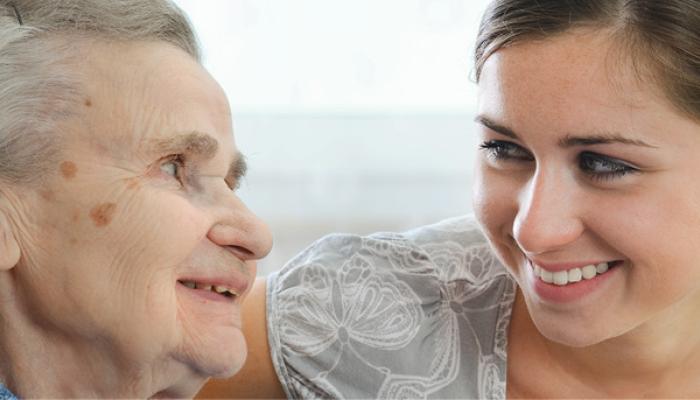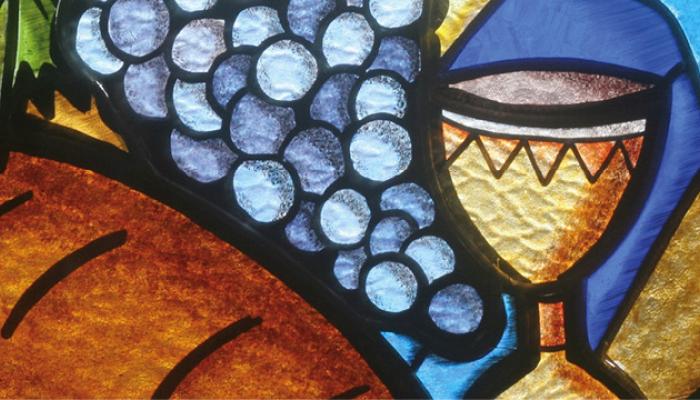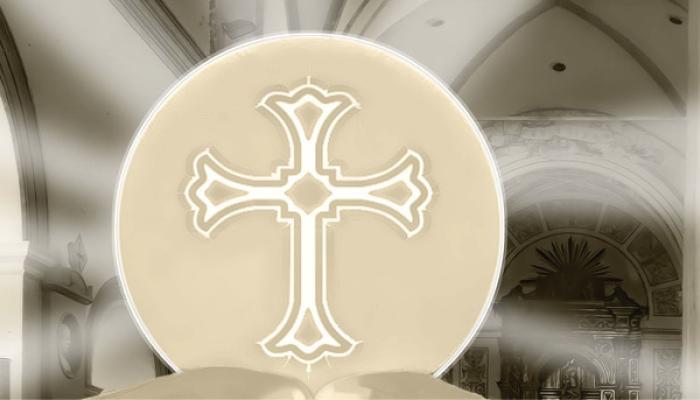
3.44 Why is Mass so boring?
The Eucharist is the most important of the seven sacraments, because this is where Jesus offers himself as food and drink. In this way, he literally strengthens us in our lives and in our faith. Jesus is really present in the Eucharist or Holy Mass, but only recognisable to those who want to believe in him.
This is why the Eucharist is called the "mystery of faith" (I Tim. 3:9) I Tim. 3:9: They must hold the mystery of the faith with a clear conscience.. Although you may not understand everything, when you know that you are meeting Jesus in the Eucharist in a very concrete way, how could Mass be boring if you consciously participate? The #TwGOD app can help you to follow the texts of the Mass in many languages.
What is the Eucharist?
The Eucharist is the very sacrifice of the Body and Blood of the Lord Jesus which he instituted to perpetuate the sacrifice of the cross throughout the ages until his return in glory. Thus he entrusted to his Church this memorial of his death and Resurrection. It is a sign of unity, a bond of charity, a paschal banquet, in which Christ is consumed, the mind is filled with grace, and a pledge of future glory is given to us. [CCCC 271]
How did Christ institute the Eucharist?
“For I received from the Lord what I also delivered to you, that the Lord Jesus on the night when he was betrayed took bread, and when he had given thanks, he broke it, and said, ‘This is my body, which is for you. Do this in remembrance of me.’ In the same way also the chalice, after supper, saying, ‘This chalice is the new covenant in my blood. Do this, as often as you drink it, in remembrance of me’ (1 Cor 11:23–25).
This, the oldest account of the events in the Upper Room at the Last Supper, is by the apostle Paul, who was not an eyewitness himself, but rather wrote down what was being preserved as a holy mystery by the young Christian community and was being celebrated in the liturgy. [Youcat 210]
Where does the Eucharist fit in the divine plan of salvation?
The Eucharist was foreshadowed in the Old Covenant above all in the annual Passover meal celebrated every year by the Jews with unleavened bread to commemorate their hasty, liberating departure from Egypt. Jesus foretold it in his teaching and he instituted it when he celebrated the Last Supper with his apostles in a Passover meal. The Church, faithful to the command of her Lord, “Do this in memory of me” (1 Corinthians 11:24), has always celebrated the Eucharist, especially on Sunday, the day of the Resurrection of Jesus. [CCCC 276]
Who is the minister for the celebration of the Eucharist?
The celebrant of the Eucharist is a validly ordained priest (bishop or priest) who acts in the Person of Christ the Head and in the name of the Church. [CCCC 278]
What are the essential and necessary elements for celebrating the Eucharist?
The essential elements are wheat bread and grape wine. [CCCC 279]
What is the meaning of transubstantiation?
Transubstantiation means the change of the whole substance of bread into the substance of the Body of Christ and of the whole substance of wine into the substance of his Blood. This change is brought about in the Eucharistic prayer through the efficacy of the word of Christ and by the action of the Holy Spirit. However, the outward characteristics of bread and wine, that is the “eucharistic species”, remain unaltered. [CCCC 283]
How important is the Eucharist for the Church?
The celebration of the Eucharist is the heart of the Christian communion. In it the Church becomes Church.
We are not Church because we get along well, or because we happen to end up in the same parish community, but rather because in the Eucharist we receive the Body of Christ and are increasingly being transformed into the Body of Christ. [Youcat 211]
What elements are essential to a Holy Mass?
Every Holy Mass (celebration of the Eucharist) unfolds in two main parts, the Liturgy of the Word and the Liturgy of the Eucharist.
In the Liturgy of the Word, we hear readings from the Old and New Testament and also the Gospel. Besides that there is an opportunity for preaching and general intercessory prayers. In the subsequent Liturgy of the Eucharist, bread and wine are offered, consecrated, and distributed to the faithful at Communion. [Youcat 213]
How often must a Catholic Christian participate in the celebration of the Eucharist?
A Catholic Christian is obliged to attend Holy Mass on all Sundays and holy days of obligation. Anyone who is really seeking Jesus’ friendship responds as often as possible to Jesus’ personal invitation to the feast.
Actually, for a genuine Christian, “Sunday duty” is just as inappropriate an expression as “kiss duty” would be for someone who was truly in love. No one can have a living relationship with Christ without going to the place where he is waiting for us. Therefore, from ancient times the celebration of Mass has been the “heart of Sunday” and the most important appointment in the week. [Youcat 219]
When you see the Lord sacrificed, and laid upon the altar, and the priest standing and praying over the victim [Jesus], and all the worshippers... can you then think that you are still among men, and standing upon earth? [St. John Chrysostom, On the priesthood, Bk. 3, Chap. 4 (MG 48, 642)]





